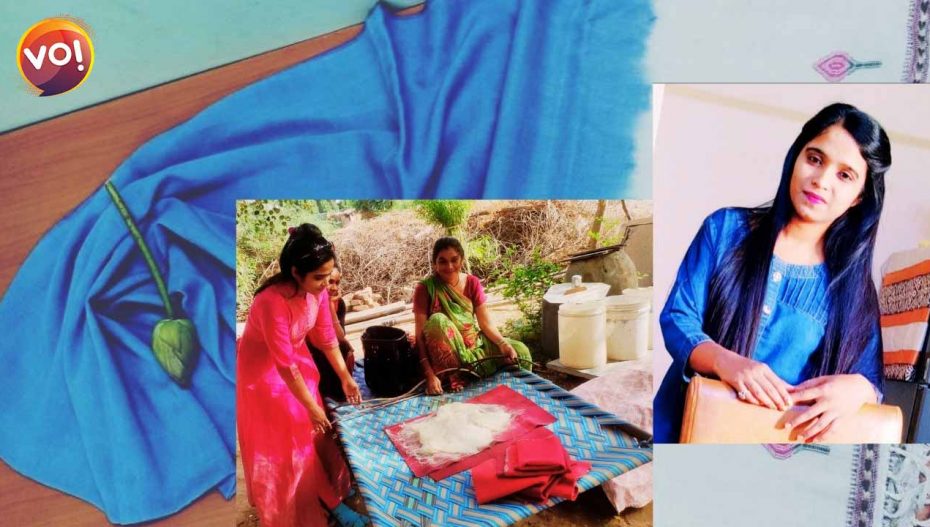Even though it may be called “Operation Lotus,” this undertaking is far removed from political consequences. An MSU PhD scholar’s research has made it possible to extract fibre from lotus stems and blend it with other natural fibres to make an eco-friendly, soft, breathable and anti-bacterial fabric. And now she is training women to do the same, guided by a vision of generating skill-based employment sources.
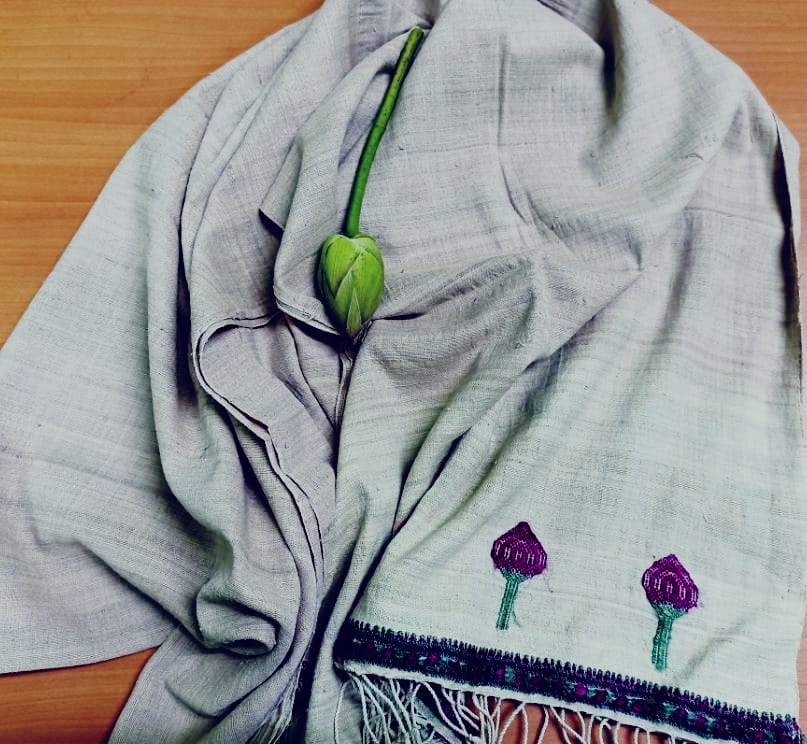
For Sumi Haldar, Ph.D scholar, Department of Clothing and Textiles, Faculty of Family and Community Sciences, Maharaja Sayajirao University of Baroda, the result is a work of painstaking research. The extraction of fibre from lotus stems is done by hand and reeled on bobbins. Her thesis is being mentored by Prof Dr Madhu Sharan.
The idea struck her in 2018. “The biggest hurdle was sourcing a bankable and regular supply of lotus. My search landed me at Khanderao Market which in turn, guided my trail to the Vadodara-based Isabbhai Rathod,” she shares, adding that personal visits to the Tarsali, Waghodia and Savli ponds yielded the first 200 stems to for the still experimental fibre.
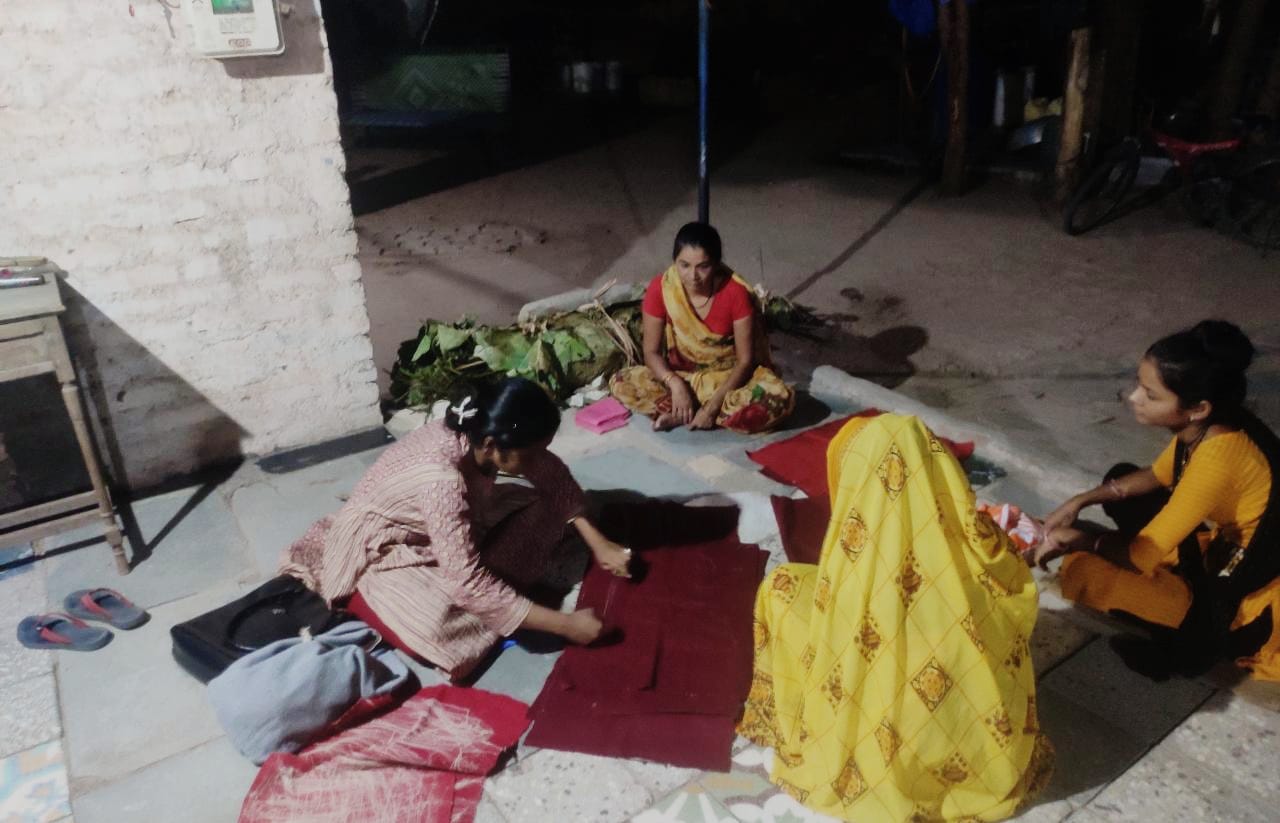
The fibre sourced, she then set out to look for “someone to spin” it. “Khadi Emporium and Sardar Bhavan Trust helped me zero in on Bakul Shah. Different spins were made possible by Bakul’s proficiency. The yarn turned out to be amazingly soft. Given that the stem is rick in anti-oxidants, the fabric has naturally in-built antibacterial properties. The next step took me to Pachan Premji in in Kutch. The master-weaver was able to incorporate the lotus yarn with cotton and silk,” she adds.
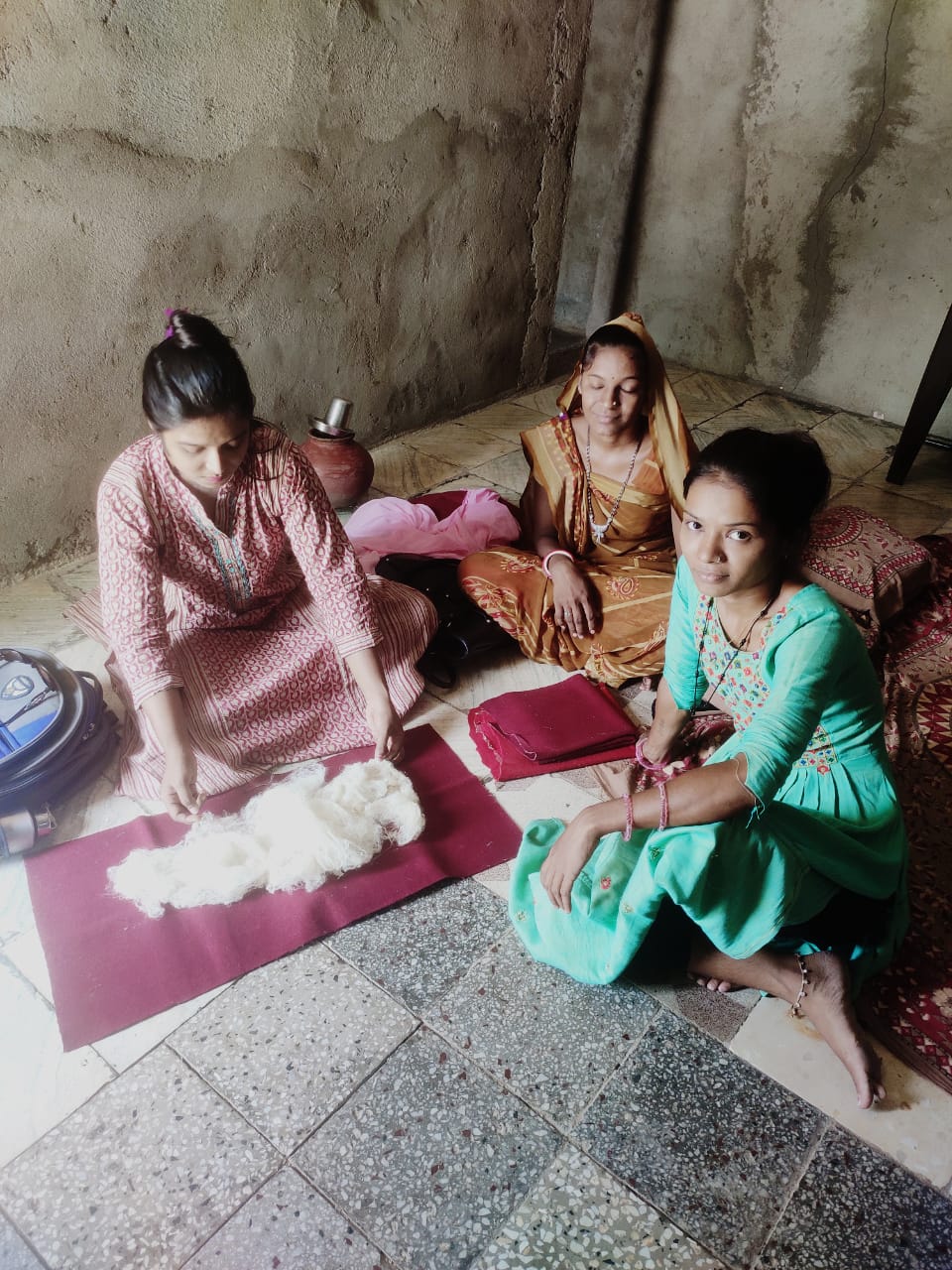
Realising that her dream was living its reality, Sumi now needed to engineer a machine. Explaining further, she states: “Extracting by hand and then spinning on a charkha is a long and slow process. A stint at Welspun and later on, as a technical crew during the mass roll out of PPE kits and masks helped me understand the machinery part in mills. I also met an engineer who helped in making a machine. The equipment has also cleared patent rights.”
Realising the potential of her project in terms of employment generation, she took the blueprint to an NGO. “My idea was welcomed by Piyush Khare, founder, Happy Faces. The initial batch comprised 10 women who were trained to extract the raw fibre from the stem by hand. These women had lost livelihood during the first lockdown,” as she puts it.
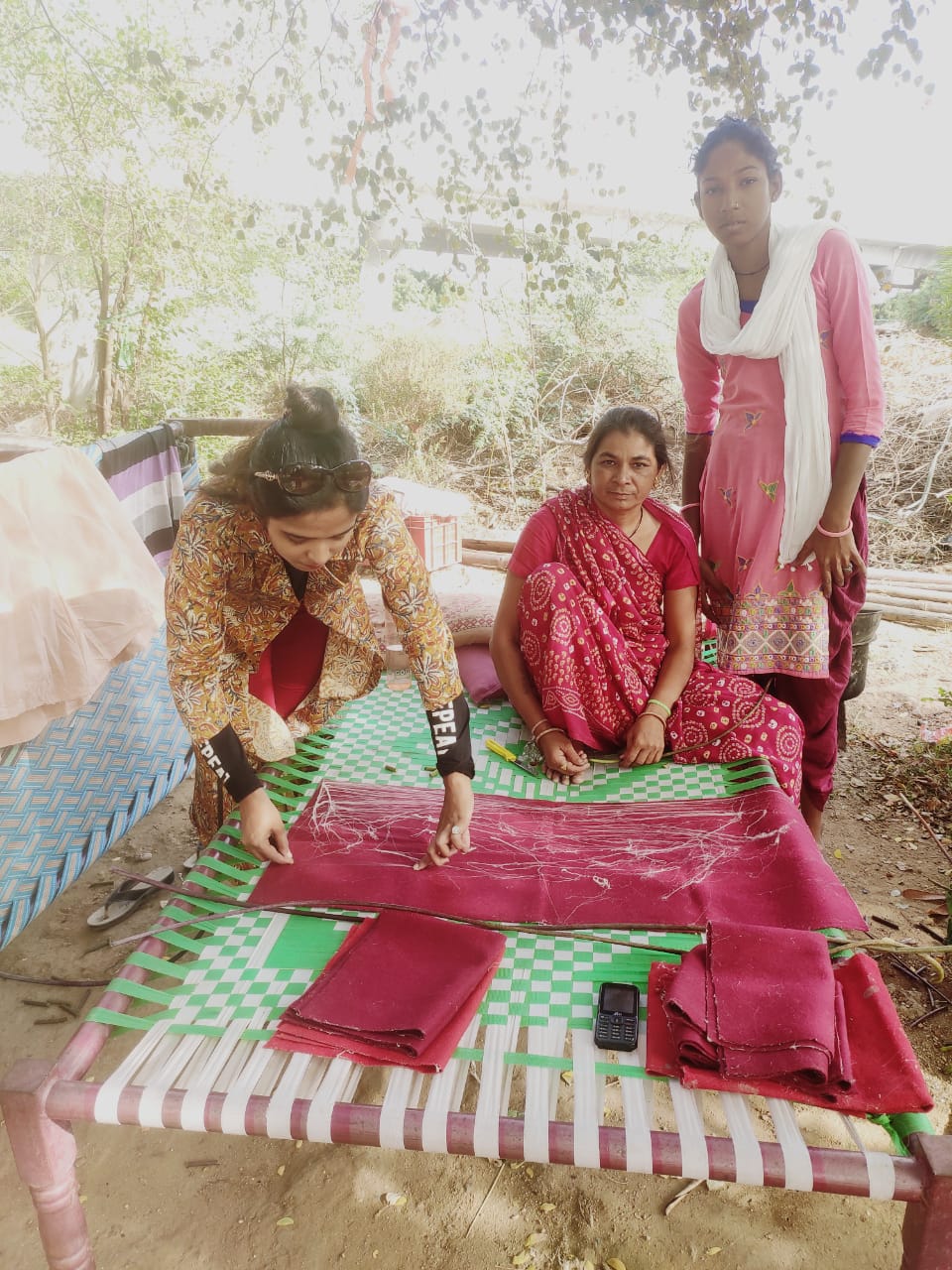
With the roadmap laid, Haldar now aims for a large-scale business. Confident of the fabric where it comes to strength, breathability, colour and being eco-friendly, she is now working on a business model.
Her path-breaking thesis has made its way to several symposiums and textile conferences. In fact, the diverse possibility of making incense sticks is also been worked on. Haldar is now a celebrated as much as cited name for an eco-friendly venture that empowers many women.
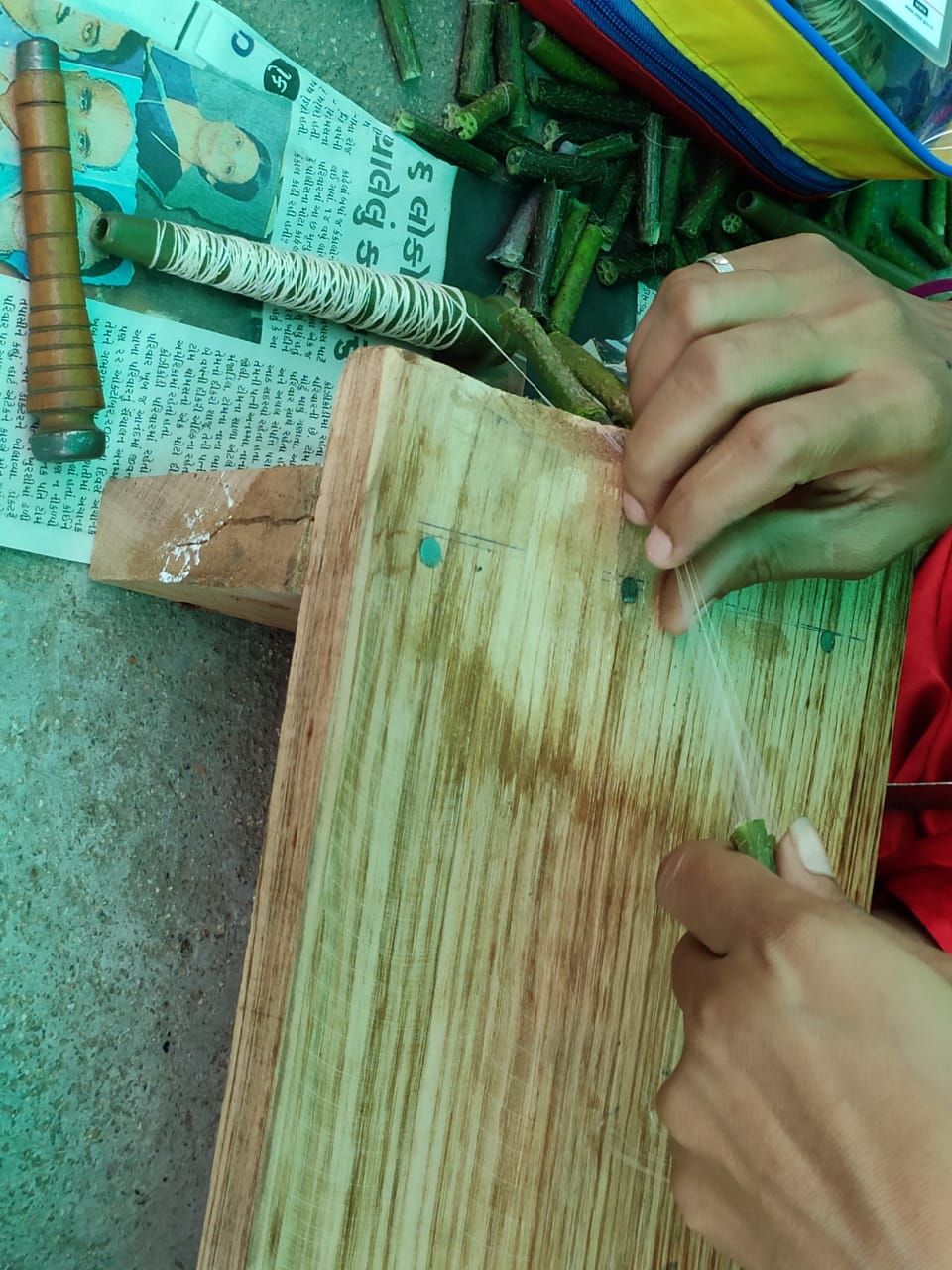
Kolakta-born Sumi Haldar (26) grew up in Gujarat. After an undergraduate degree at Vidyanagar, she completed a Masters from MSU Baroda as a gold medallist. Then followed a teaching stint alongside preparations for clearing the entrance to a PhD. When asked to share his perspective on Haldar’s work, Dr Sharan lauded his student’s work: “Not a drop of chemical has been used and Sumi’s project highlights the department’s work towards sustainability. We now need to identify needy blocks and start the mass training.”
Also Read: Man’s Best Friend Is Dog’s Best Friend Too



